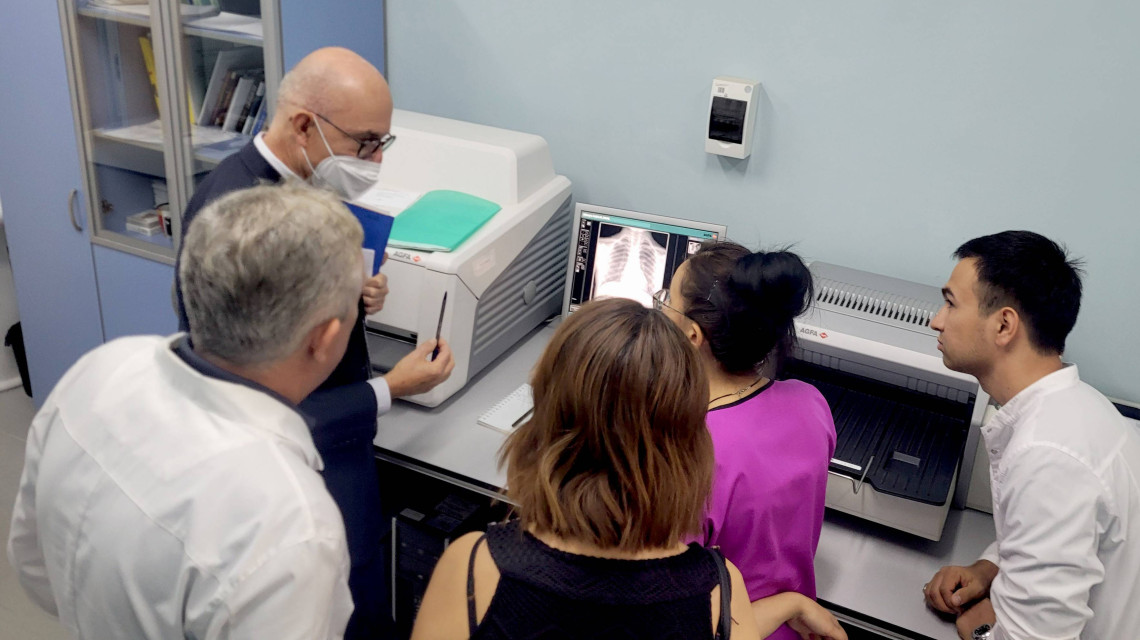Uzbekistan has made substantive progress in the expansion of access to, and quality of, cancer care services, an IAEA-WHO-IARC-led team concluded this month, following an imPACT Review.
In the years since the conclusion of a 2014 review mission, the number of functioning external beam radiotherapy machines in Uzbekistan has grown from five machines in four cancer care institutions to 19 in 15 institutions in 2022.
In 2020, more than 20 000 new cancer cases were registered in Uzbekistan, an annual figure which is expected to nearly double by 2040, according to the International Agency for Research on Cancer (IARC). In its efforts to address the growing cancer burden, the Government of Uzbekistan invited experts from the IAEA, WHO and the International Agency for Research on Cancer (IARC) to assess its national capacities in cancer control and to provide corresponding recommendations to strengthen their national cancer infrastructure and workforce.
Comprising international and national cancer specialists, the team provided actionable guidance to expand and enhance cancer care in Uzbekistan—particularly in the areas of breast, cervical and childhood cancers—by scaling up prevention and early diagnosis services, improving quality and access to treatment, and by guiding the development of a new national cancer control programme (NCCP) and further investments in cancer control.
Following in-country visits to key facilities and discussions with the main stakeholders and service providers, the imPACT Review equips national decision-makers with baseline data and analysis on cancer control capacities in their country.
“This imPACT review also included an in-depth analysis of infrastructure, equipment and workforce needs in the main cancer care hospitals in the country,” said Christoph Henrich, the Programme Management Officer of the IAEA’s technical cooperation programme in Uzbekistan. “This information is now being used to define corresponding equipment and human resource capacity building activities for upcoming oncology projects for the country.”







